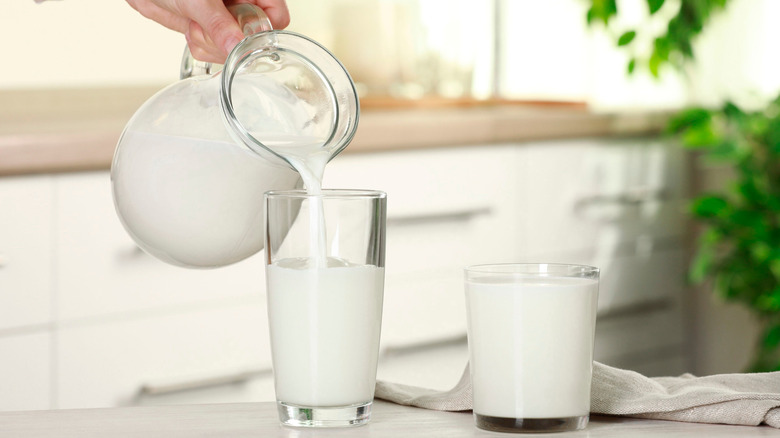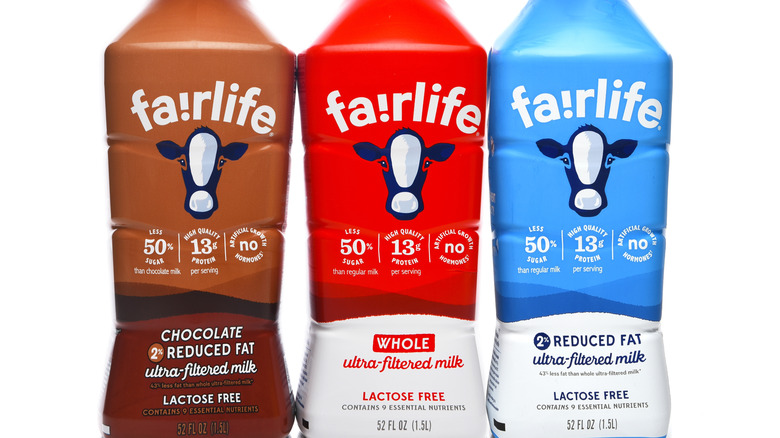What Sets Ultra-Filtered Milk Apart From Standard?
Milk comes in all sorts of forms these days, from plant-based versions like oat milk to shelf-stable dairy drinks. It's a wide, wild world of milk out there. One lesser-known variety is ultra-filtered milk. Fairlife is one of the biggest brands known for selling ultra-filtered dairy products, and you can find Fairlife milk in the refrigerated aisle at most major grocery stores. It's quite an interesting beverage in that its production method gives it some properties that regular milk doesn't have.
First of all, as the name implies, ultra-filtered milk does undergo a special filtering process. Skim milk, which has already had most of the fat removed, is pushed through membranes that parse large amounts of natural sugar along with quite a bit of water. Some water is later returned to the milk to restore its volume, but not all of it is re-added. This means the final product contains a more concentrated amount of protein. Lactase is added to break down the remaining lactose (creating a lactose-free product for people like me), and any desired milkfat is put back in as well. The whole product is then homogenized and bottled.
Here's what ultra-filtered milk tastes like
As you'd imagine, filtering milk to this extent changes the way it tastes and feels in your mouth to the point where you'll likely notice it. As someone who's tried ultra-filtered milk, I was surprised to find that it has a particularly creamy texture, even though the fat levels are the same as in regular milk (around 1-2%). The luscious consistency is thanks to the extra density of the protein. Ultra-filtered milk is also a little bit sweeter than regular milk because lactose turns into two sugars, galactose and glucose, when broken down. You'll find this slightly sweet flavor in most lactose-free milk.
That being said, you don't need to think too hard about the differences between regular and ultra-filtered milk — you can drink it or use it just like regular milk. Similar to homemade nut milk or soy drinks, it's great for those who need to avoid lactose, but it's also good for people who live active lifestyles and want to maintain a high protein intake. (Gotta get those gains, as they say.) However, in terms of price, ultra-filtered milk does cost extra. A 52-ounce container retails at around $4-6 at most stores, while a gallon of milk goes for $2-4.

